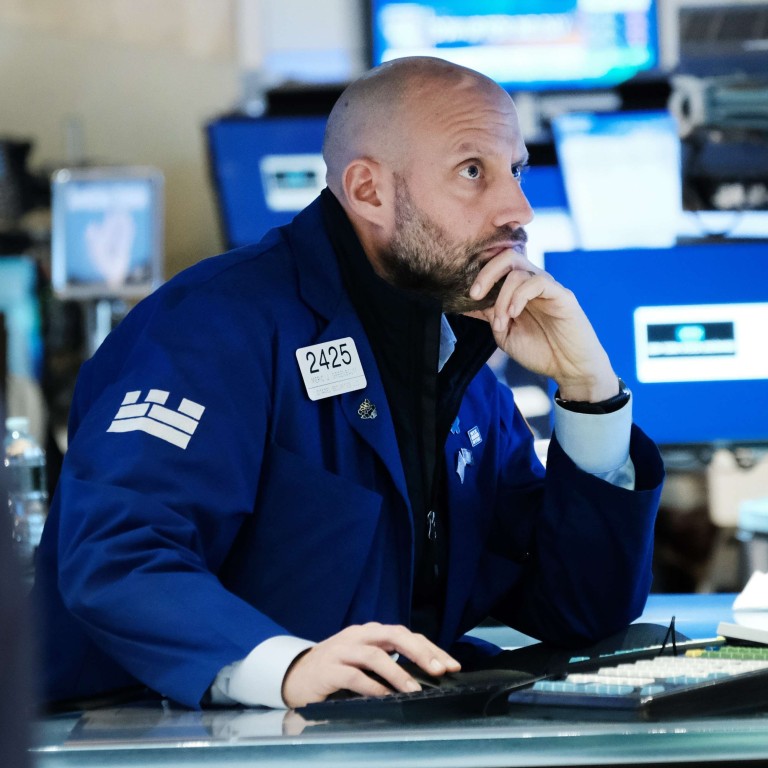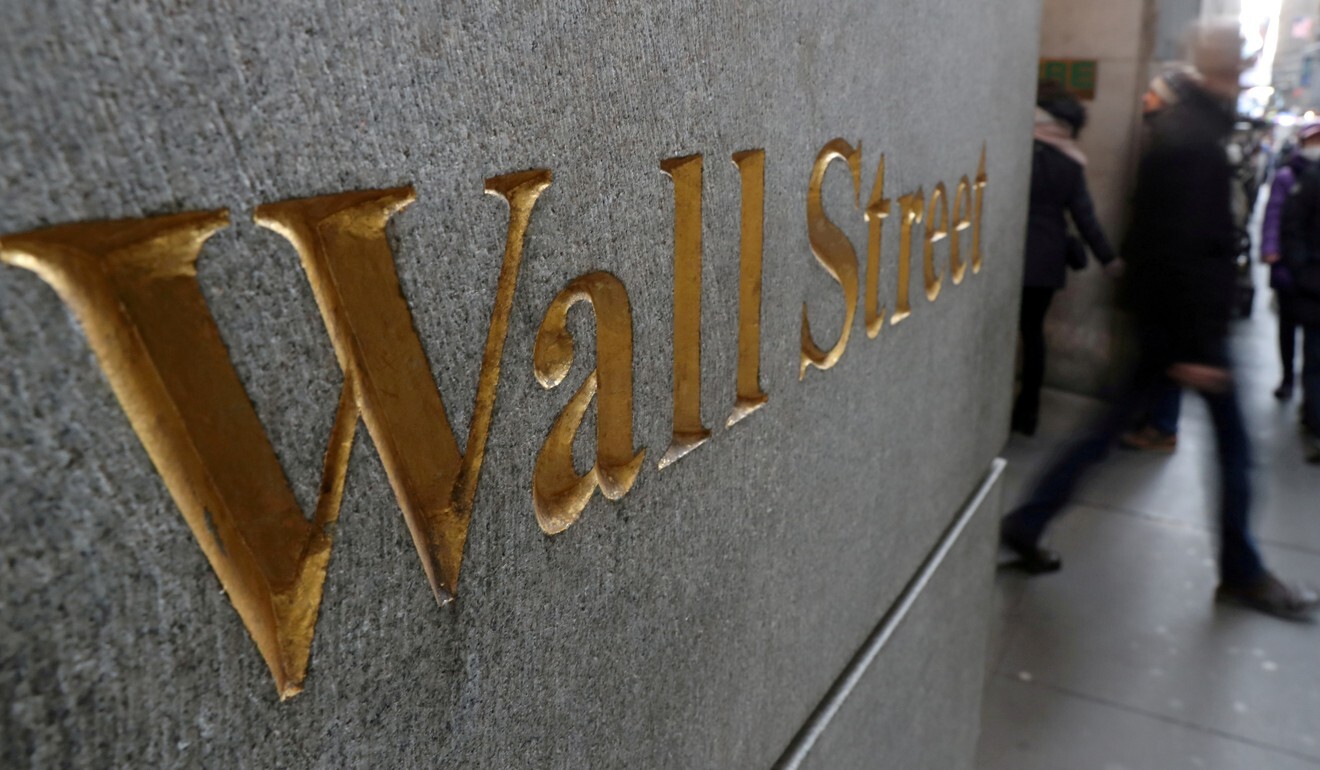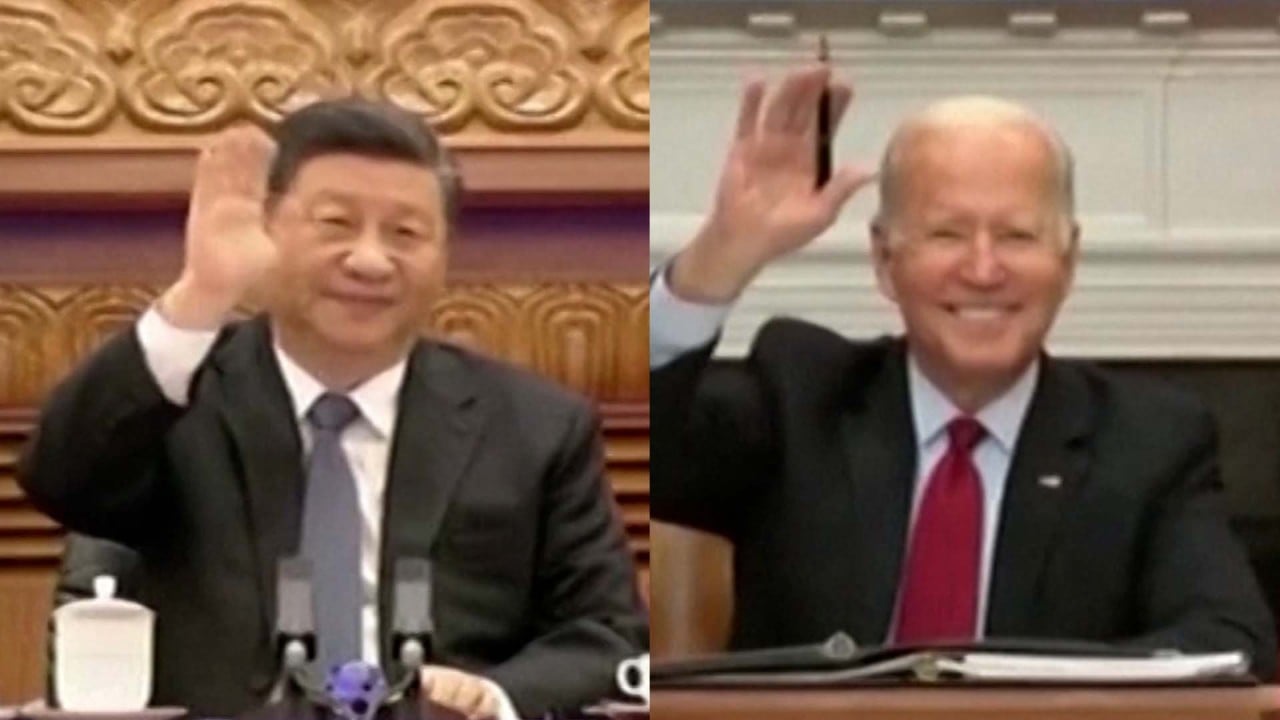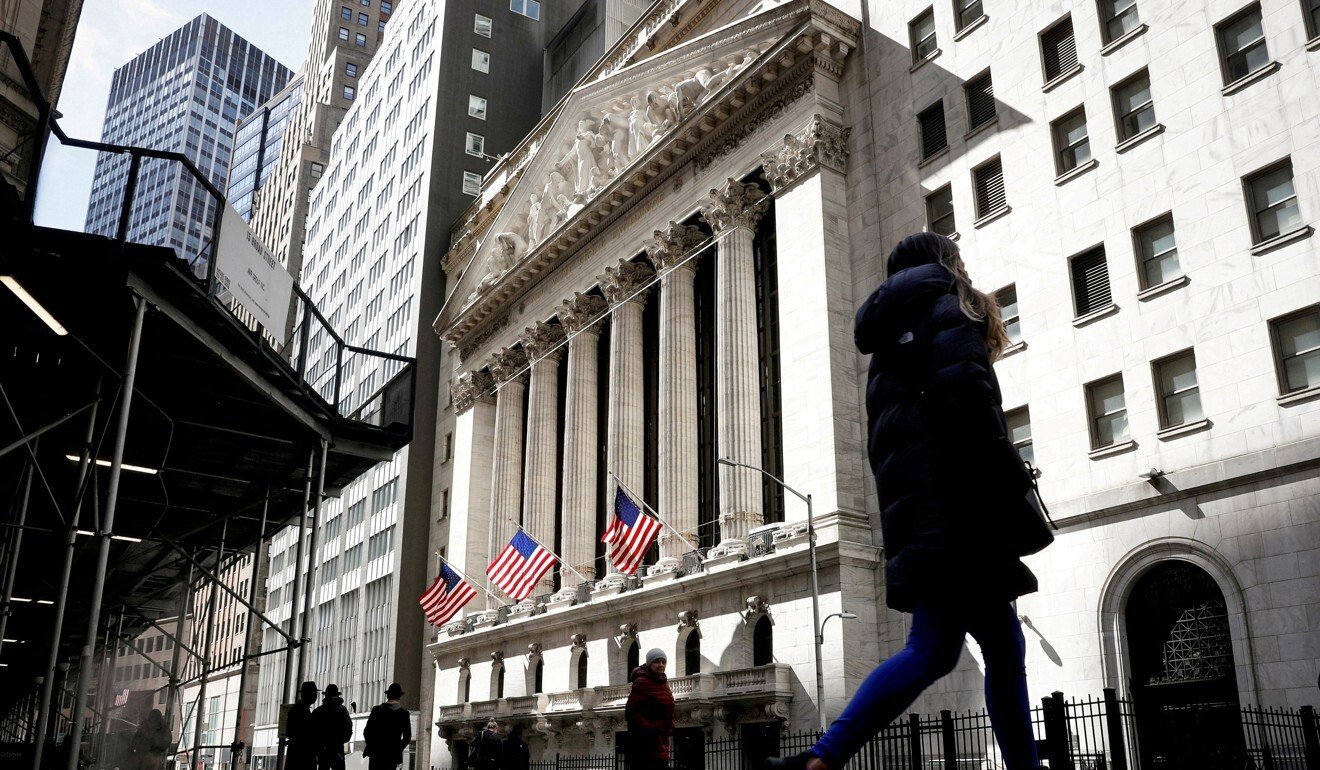
US should expand investment restriction on Chinese company to protect investors and national security, government advisory panel says
- Commission says that the US should require additional risk disclosures from Chinese companies as well as from US brokerage firms
- The group says Beijing’s crackdown on technology companies has led to billions of dollars in losses for US investors
The US-China Economic and Security Review Commission (USCC), an independent government panel set up in October 2000, said Beijing’s crackdown on technology companies – many of which are listed on US exchanges – led to billions of dollars in losses for US investors.
The commission said that the US should require additional risk disclosures from Chinese companies as well as from US brokerage firms to protect American investors from regulatory uncertainties.
The Treasury Department should put together a report each year on portfolio investments by US investors in Chinese companies, it added. The list should include US capital in specific Chinese industries, the types of US institutions that invest in Chinese firms, and any exposure to Chinese businesses on US blacklists.

“Our recommendations are not designed to prevent American businesses from investing in Chinese businesses,” said Bob Borochoff, a commissioner of the panel, on Wednesday. “They are designed to give Americans an opportunity to know what they are investing in and to prevent Americans from investing, inadvertently, in forbidden businesses.”
The variable interest entity (VIE) is one area of concern. The structure has helped Chinese companies bypass Beijing’s restrictions on overseas listings by selling shares through an offshore entity, but it is risky for US investors because such entities do not own the underlying assets. In cases of bankruptcy, these investors would have limited chance to recuperate their capital.
The commission said US regulators should identify the risks of such investments more clearly, including that such a structure is illegal under Chinese law.
Biden and Xi agree to plan arms control talks, says US official
Stock index providers like MSCI and FTSE that include securities issued through VIEs, and shares listed on the mainland or in Hong Kong should be regulated, the commission said. Companies that help issue and trade Chinese securities should also be considered as supporting the Chinese military-industrial effort, it said.
In July, the Securities and Exchange Commission said it required the listing firms to make the financial connections clear to investors and state the risks that they might face in the event of regulatory pressure from the Chinese government.
The commission said in Wednesday’s report that the regulator should also require US brokers to warn investors that they may not have legal recourse of such investments.
The annual report was released at a time when China’s quest for capital has grown because of the rising corporate debt crisis. Real estate developer China Evergrande’s struggle to stave off its debt default is spilling over to the sector that has been the main driver of the economic growth.

02:25
Xi Jinping and Joe Biden call for mutual respect and peaceful China-US coexistence
The report noted that as of May 5, about 248 Chinese companies were listed in the US with a total market capitalisation of US$2.1 trillion. While the number of companies rose from the last update in October last year, the total market value dropped by US$100 billion.
Didi, the ride-hailing app, dropped in value after Chinese regulators announced an investigation into the company days after it debuted on the New York Stock Exchange in June.
Chinese companies should also report whether a Chinese Communist Party committee is involved in making business decisions as such an arrangement has “growing influence over corporate governance by overseeing personnel appointments”, the report said.
US asks China to release oil reserves as part of economic cooperation
Since 2017, as many as 73 per cent of non-state Chinese firms have established party units, interfering in personnel and management decisions, said Carolyn Bartholomew, chairman of the commission for the 2021 report.
Despite that, the commission “concluded there is no evidence of course correction” from US investors and businesses towards China. Instead, the investors “are continuing to charge off in the wrong direction, which puts at risk both retail and institutional investors and our national security economic relationship”, said Bartholomew, citing one witness she interviewed for the report.
The report focuses largely on the Commerce Department’s entity list, companies that US firms are prohibited from doing business with, and the Treasury Department’s list of Chinese firms Washington believes that have military ties.
Chinese firms that are sanctioned by one US agency should be automatically sanctioned by other agencies, unless a waiver is granted, the report recommended. This aims to create policies that are coherent, commissioners said.

“I don’t think we should just start restricting everything in sight,” said Derek Scissors, a commissioner. “We need to have good grounding for our actions.”
Scissors cited export controls for sensitive technology.
“We certainly don’t want to give the Chinese money to develop that technology,” he said.
Similar concerns were also raised by lawmakers on Wednesday, as members of the Congressional-Executive Commission on China (CECC) raised the alarm about US investments in Chinese technology companies, such as those developing semiconductors.
“Without a lot of effort, scrutiny and action, US capital and technology become complicit in supporting and accelerating [Beijing’s] techno-authoritarianism,” said Jeff Merkley, Oregon Democratic senator and CECC chair, at a hearing convened by the panel.
Additional reporting by Owen Churchill

